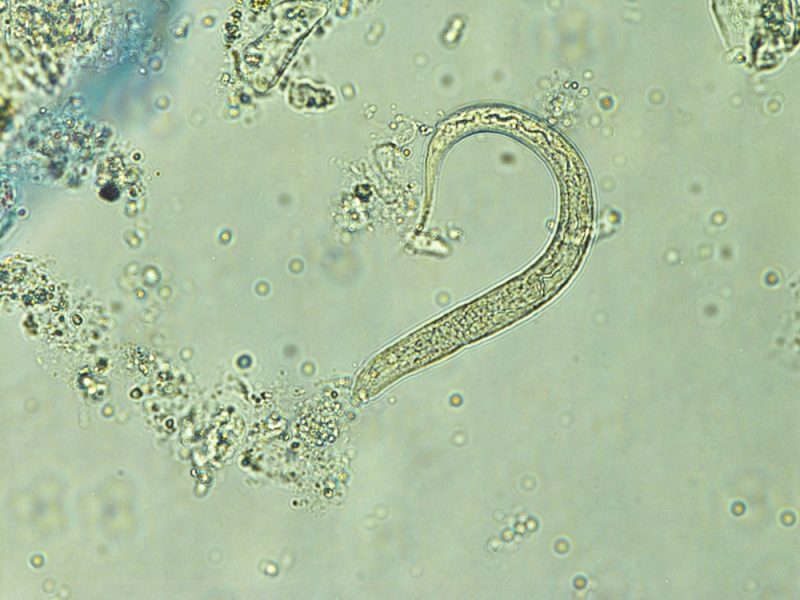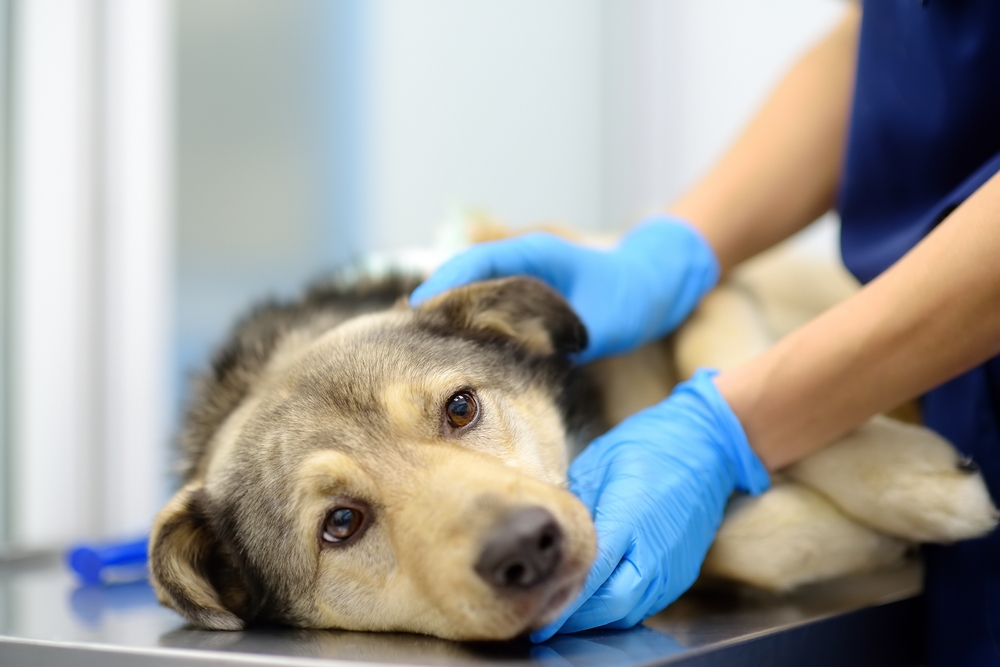It can be distressing to see your dog throw up, and even more concerning if you notice worms in the vomit. Worms are common in dogs, with roundworms, tapeworms, and hookworms being the most prevalent types. While worms in the vomit might suggest they're the cause, it's important to consider other possibilities. Many dogs have intestinal worms without showing signs, so vomiting could indicate another issue, but addressing the worms is crucial for recovery.
The 3 Possible Reasons Your Dog Is Throwing Up Worms
1. Roundworms

Roundworms are the most common worm infestation in domestic dogs, especially in puppies, who can contract them from their mother in the womb or through milk. While many dogs show no signs, significant infestations in puppies can cause a pot-bellied appearance and weight loss. Roundworms can appear in vomit and might cause vomiting. They can be transmitted to humans, posing a risk to young children and pregnant women.
Causes: Dogs get roundworms by ingesting fecal matter of infected animals or eating infected prey. Puppies often get them from their mothers.
Signs: Pot-bellied appearance, vomiting, diarrhea, poor coat quality, weight loss, and appetite changes.

Prevention: Worming pregnant dogs and their puppies at 2, 5, and 8 weeks. Cleaning up feces promptly and preventing dogs from eating wildlife.
Treatment: Oral medication, with puppies typically dewormed at 2, 5, and 8 weeks. Regular deworming throughout life, followed by fecal analysis to ensure effectiveness.
2. Tapeworms

Tapeworms are common, long, flat parasites that attach to the small intestine. They release segments containing eggs, which look like rice grains and may be visible around the dog's bottom. The lifecycle involves fleas or rodents as intermediate hosts.
Causes: Dogs get tapeworms by swallowing infected fleas or rodents. Adult tapeworms can reproduce individually.
Signs: Scooting, visible segments around the bottom or in the bed, weight loss, and coat changes in severe cases.

Prevention: Flea control, preventing consumption of wildlife and feces, and regular deworming every 3 months.
Treatment: Vet-administered injections or tablets targeting tapeworms, especially important for puppies to prevent stunted growth.
3. Hookworms

Hookworms are small, hard-to-see worms that attach to the intestine, releasing an anticoagulant that causes prolonged bleeding. They're dangerous for puppies.
Causes: Transmitted from mother to puppy via colostrum or milk, ingestion of feces or contaminated soil, or skin penetration. They can accidentally infect humans, causing cutaneous larva migrans.
Signs: Vomiting, diarrhea, lethargy, and anemia due to intestinal bleeding, severe in puppies.

Prevention: Worming bitches before breeding, maintaining hygiene, avoiding contaminated areas, and regular fecal checks.
Treatment: Similar to other intestinal worms, with puppies dewormed at 2, 5, and 8 weeks, followed by routine deworming every 3-6 months.

Vomiting in Dogs
Finding worms in vomit doesn't necessarily mean they caused the vomiting. Vomiting can signal other conditions, so consult a vet if it continues or if your dog is lethargic or not eating. A vet can confirm the worm type and recommend appropriate treatment.
Frequently Asked Questions (FAQ)
Should You Take Your Dog to the Vet?
Over-the-counter worming treatments exist, but knowing the parasite type is crucial for effective medication. Vets can assess if worms are the cause of vomiting and provide prescribed medication, often more effective than over-the-counter options.

Can I Treat My Dog for Worms Without Going to the Vet?
Non-prescription treatments are available, but they may not be as effective as prescription drugs, especially if the wrong medication is used. Vets can rule out other causes of vomiting.
Can Humans Catch Roundworms from Dogs?
Humans can catch roundworms by ingesting larvated eggs, commonly seen in children playing in contaminated dirt. Dog roundworm larvae can't develop into adults in humans but can cause organ damage, especially in the eyes.
Do I Need to Disinfect My House If My Dog Has Roundworms?
Properly disinfect areas where your dog has defecated. Clean the dog's bed and frequently used areas. Although fleas transmit tapeworms, de-fleaing the house helps prevent parasite spread and ensures safety.

Conclusion
Intestinal worms are a common issue, especially in puppies, who can get them from their mothers. Signs vary by worm type but can include a pot-bellied appearance, vomiting, diarrhea, dermatitis, poor coat condition, and appetite changes. Treatment typically involves worming tablets or injections, with vets guiding the process to ensure effectiveness and rule out other health issues.

